Keep a Journal when you TravelPrepared by Harold Stephens
Travel Correspondent for Thai Airways International
What are the rewards of travelling? Obviously, it's memories. Memories bring back to mind those strange and distant places we have visited, the people we have met and the experiences we have had. Without memories travelling would be pointless.
To help keep those memories alive, we have several options. We can take photographs, perhaps even videos or maybe even carry a tape recorder. And we can also bring back souvenirs and other small reminders.
There's still another way. We can, as some travellers do, take notes, that is, keep a diary or a journal of our travels.
Keeping a travel journal has some marked advantages. As we all know, it would be impossible to remember everything that takes place on a long journey. After a while, dates, names and even places elude us, especially after the passing of time. But the written word, kept in a journal, is there forever. And like wine, the older a journal becomes, the more valuable it seems to be. In other words, the notes you take now might be quite valuable a hundred years from now, when the world of tomorrow wants to take a look at today. And just think, you could become famous. Look what some of the world's early travellers had to say about travel, and as a result look at the names they made for themselves.
English philosopher, Francis Bacon, noted in his essay "Of Travel," written over 400 years ago, that during sea voyages when there is nothing to be seen but sky and sea, travellers keep diaries, but on land journeys, where there is so much to be observed, they hardly even keep notes? (Bacon also noted "Travel, in the younger sort, is part of education; in the elder, a part of experience.")
Those who have taken long sea voyages will agree with Francis Bacon. Aboard ship we have the leisure to reflect upon our past and we get a chance to look at ourselves introspectively, and in our free time we keep diaries. But from the travel point of view, such diaries are of little value. Ten years from now all they will tell us is that we were melancholy, or maybe happy to be away for a while.
Many of our famous writers, both past and present, kept notes when they travelled, and they were later to make use of those notes.
One of our best accounts of life in the South Pacific during the late 1800s, for example, comes from a 300-page book called In the South Seas. It was written by Robert Louis Stevenson, author of Treasure Island. Stevenson had chartered a sailing schooner and spent several months cruising the South Pacific, looking for a place where he could live in peace and quiet and write.
Stevenson sailed from Hawaii to the remote Marquesas Islands and then on across the Pacific to Tahiti, Samoa and the Gilbert Islands. He finally settled in Apia, Western Samoa, where he lived out his life and is buried.
During the entire voyage Stevenson kept a journal, jotting down descriptions of the islands, conversations with the natives and other bits of information such as local legends and superstitions. After his death, his journal was found and published by his widow. It's a masterpiece of travel writing, yet Stevenson never intended to write a travel book. Even he didn't recognise the value of the notes he had kept.
The great British novelist and storyteller, Somerset Maugham, gathered all his notes together after more than half a century of writing and published them in a book called A Writer's Notebook. The book gives us an excellent insight on the author and his habits, including bits of information that were to later form the plots for his many novels. The book begins with random notes he put down on paper when he was eighteen, years before he turned to writing as a profession.
Prime Minister Winston Churchill of Great Britain began taking notes when he first entered politics. After his retirement he was able to compile the history of The Second World War in six volumes. He certainly could not have achieved the feat had he not kept his own journal throughout the war.
John Steinbeck, the Nobel Prize winning American novelist--Tobacco Road and Grapes of Wrath--made a trip around America with his dog Charlie in a campervan and wrote a delightful travel book about his experience, which he called it Travels with Charlie. It made the best-seller list. It's not a historical piece such as Churchill's massive volumes but it does give us a look at America mid-century.
James Michener also got sidetracked when he went to Spain and wandered around the country for several months gathering background information and jotting down notes for a book he intended to write about Mexico. The notes proved to be so interesting he wrote a book called Iberia instead of the one on Mexico.
I often wonder how many books come out of notes that travellers keep. I wouldn't be a bit surprised if Homer hadn't kept a journal back in 450 B.C. when he wandered around the Mediterranean. It was from his travels that came two lengthy poems called The Iliad and The Odyssey, both Greek classics. They were probably the first travel books ever written.
It happened much the same way with Mark Twain, the famous American humourist and author of The Adventures of Tom Sawyer and The Adventures of Huckleberry Finn. While travelling on a liner from San Francisco to Honolulu, Twain kept a travel log which he sent back home in the form of letters. His family had the letters published in their local newspaper. Readers liked what they read and Twain was asked to contribute more. Instead of returning to America, he continued his journey around the world, and kept up his log, and from it came another American classic--Innocents Abroad. Twain became just as famous for his travel writing as he was for his fiction and humour.
A raft of travellers has turned their travel adventures into profit by writing about them. One of the early European travellers in Asia who wrote about her experiences was an English lady, Isabella Bird. In 1879, she travelled by steamer from Hong Kong to Saigon, down to Singapore and then up the Malacca Strait to Penang. Her travels appeared under the title The Golden Chersonese, Travels in Malaya in 1879.
The Golden Chersonese is today a very valuable documentary on life in Singapore and Malaysia a hundred years ago. The book, as Miss Bird admits, is the result of detailed notes she took along the way.
Paul Theroux, who once lived and worked in Singapore, is another author who did not set out to make his mark as an author of travel books but circumstance has made him so. His latest book To the End of Earth, selected travels of Paul Theroux, has recently been published and is already a success. It's a collection of travel vignettes.
In the early 1970s, frustrated by the lack or response and remuneration generated by his novels, Theroux decided to take a train journey through Asia, which he chronicled. His editor got hold of the notes and published them in book form, and called it The Great Railway Bazaar.
Overnight the book catapulted Theroux to fame and continues to sell years later. Although his novels that followed have fared well, he is best known as a travel writer ever since.
Theroux maintains that "the journey not the arrival matters" and that "travel is a creative act--not simply loafing and inviting your soul, but feeding the imagination, accounting for each fresh wonder, memorising and moving on." For Theroux, memorising is writing it down as it is happening, as an artist takes his easel on to a busy thoroughfare and paints a street scene.
Have kept a journal most of my life, even when I was in the South Pacific as a US Marine and later in China. When I wrote a book a few years ago called Take China, readers asked how could I possibly remember all the same details that I pt in the book. It was not a question of remembering. All I had to do was to turn to my journal.
Keeping a journal when you travel is easy enough and is simply a matter of habit. Unlike travelling with expensive cameras and videos, keeping a journal requires no more than pen and paper. An inexpensive, soft-cover notebook, one that you can bend or fold and stick into your back pocket, will suffice. Then who knows, one day your notebook may become literature. QUESTIONS & ANSWERSQ.The coming Phuket International Boat Show is the place to go for all boating needs. Held 6-9 January 2011 at Royal Phuket Marina on Phuket, a large variety of international boat brands are available for inspection and purchase. Everything from superyachts to power boats, sail boats, speed boats and dinghies are on display. Could you mention this to your readers? Andy Dowden, The PIMEX team
A.I will certainly do that. It sounds interesting. ––HS
Harold Stephens
Bangkok
E-mail: ROH Weekly Travel (booking@inet.co.th)
Note: The article is the personal view of the writer and does not necessarily reflect the view of Thai Airways International Public Company Limited. | 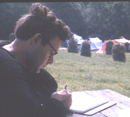
Taking notes means keeping a journal. The author in Russia | | 
The author takes notes when interviewing a camel driver | | 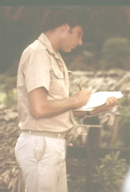
Photographer Robert Stedman takes notes with each photograph | | 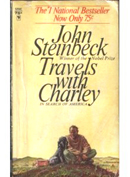
Steinbeck turns notes into a travel book | | 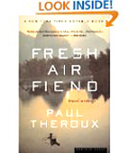
Paul Theoroux takes notes to become noted travel books | | 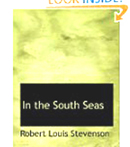
Robert L. Stevensons wrote travel books from his notes | | 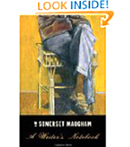
Somerset Maugham even wrote a book about notes be kept |
|





